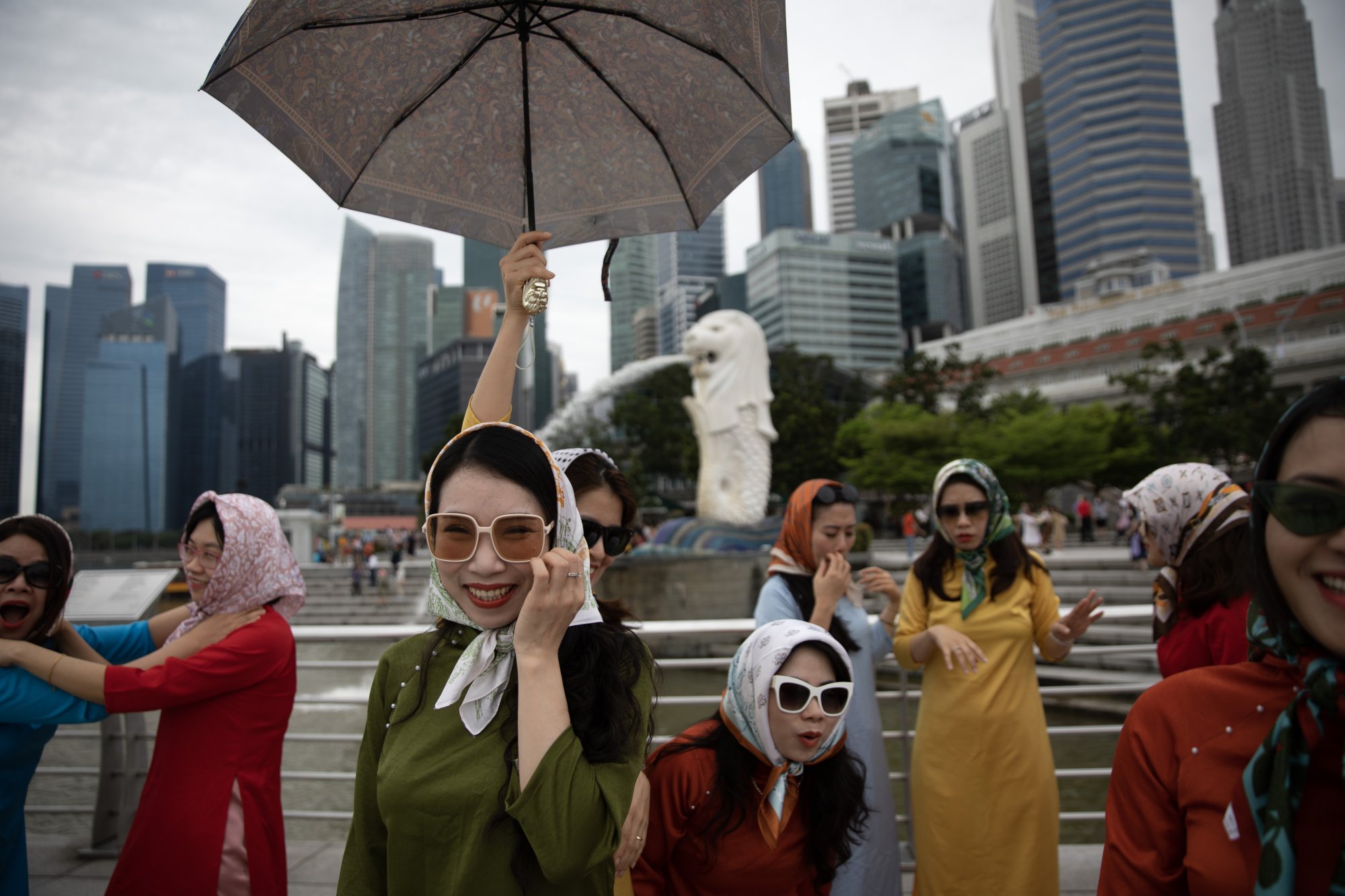Singaporeans told to mask up in crowded places as Covid-19 cases soar
[ad_1]
It has been giving weekly updates for Covid-19 cases on its website.
As Covid-19 testing is no longer routinely required in Singapore, the number of reported Covid-19 cases is expected to under-represent the actual situation, MOH said.
To derive a more accurate estimate of the number of Covid-19 cases domestically, MOH calculates the estimated number of infections, taking into account various factors.
These include the number of acute respiratory infection attendances at polyclinics, the proportion of acute respiratory infection samples from polyclinics that test positive for Covid-19 for each epidemiological week, and the share of national acute respiratory infection cases that are seen in polyclinics.
Calls for return of masks, airport scanners in Southeast Asia amid Covid surge
Calls for return of masks, airport scanners in Southeast Asia amid Covid surge
The estimated number of Covid-19 cases in the week of December 3 to 9 rose to 56,043 cases, compared to 32,035 cases in the week before that.
MOH reported that the average daily hospitalisations rose to 350 from 225 the week before, and the average daily cases in intensive care units (ICUs) increased to nine cases from four cases previously.
These cases were infected by JN.1, a sublineage of the coronavirus’ Omicron subvariant BA.2.86.
JN.1 now accounts for the vast majority of the Covid-19 cases in Singapore.
Based on the available international and domestic data, there is no clear indication now that BA.2.86 or JN.1 are more transmissible or cause more severe disease than other circulating variants, MOH said.
To preserve Singapore’s healthcare capacity, the ministry has been working with public hospitals for contingency planning.
This includes ensuring adequate manpower and deferring of non-urgent electives (scheduled medical treatments or appointments) to maximise bed capacity for urgent cases in need of acute care.

In addition, hospitals are tapping step-down facilities such as transitional care facilities and alternative care models such as Mobile Inpatient Care@Home, where patients have the option to be cared for in their own home instead of in a hospital ward.
To preserve the hospital’s capacity for patients who truly need it, MOH urges the public to seek medical treatment at a hospital’s emergency department only for serious or life-threatening emergencies.
Besides encouraging mask-wearing in indoor settings, or when visiting or interacting with vulnerable persons, MOH is urging the public to exercise personal and social responsibility.
People who are unwell with acute respiratory infection symptoms should stay at home until symptoms resolve, and avoid contact with others, it said.
“If they have to come into contact while unwell, they need to exercise social responsibility by wearing a mask, minimising their social interactions, and avoiding crowded places,” it added.
Travellers should adopt the relevant travel precautions, such as wearing a mask at the airport, getting travel insurance and avoiding crowded areas with poor ventilation.
“Vaccination is our primary defence against Covid-19 and continues to be effective in preventing severe illness,” MOH said.
Waning immunity, increased travel fuel jump in Singapore Covid cases
Waning immunity, increased travel fuel jump in Singapore Covid cases
The ministry’s analysis showed that hospitalisation rates were considerably lower among people who have kept up to date with Covid-19 vaccinations, with an additional dose received within the last 12 months, compared with those who have not.
As immunity in the population wanes over time, MOH urges everyone to keep their vaccination up to date to stay protected and maintain the nation’s collective resilience against Covid-19.
The updated Covid-19 XBB.1.5 Pfizer-BioNTech-Comirnaty and Moderna-Spikevax vaccines continue to be free at Joint Testing and Vaccination Centres, participating Public Health Preparedness Clinics and selected polyclinics.
MOH also advises people aged 60 years and above, medically vulnerable persons, and residents of aged care facilities to get the updated vaccine if their last dose was more than a year ago.
Long Covid casts a long shadow over Asia as patients cry out for a cure
Long Covid casts a long shadow over Asia as patients cry out for a cure
All individuals aged six months and above are encouraged to receive the extra dose, particularly for healthcare workers and household members who are caregivers of medically vulnerable individuals.
“Our society has weathered several infection waves and emerged more resilient each time, and we can similarly withstand this wave with everyone’s cooperation,” MOH said.
“We urge everyone to play their part in protecting themselves and their families, especially seniors and medically vulnerable persons.”
[ad_2]
Source link

